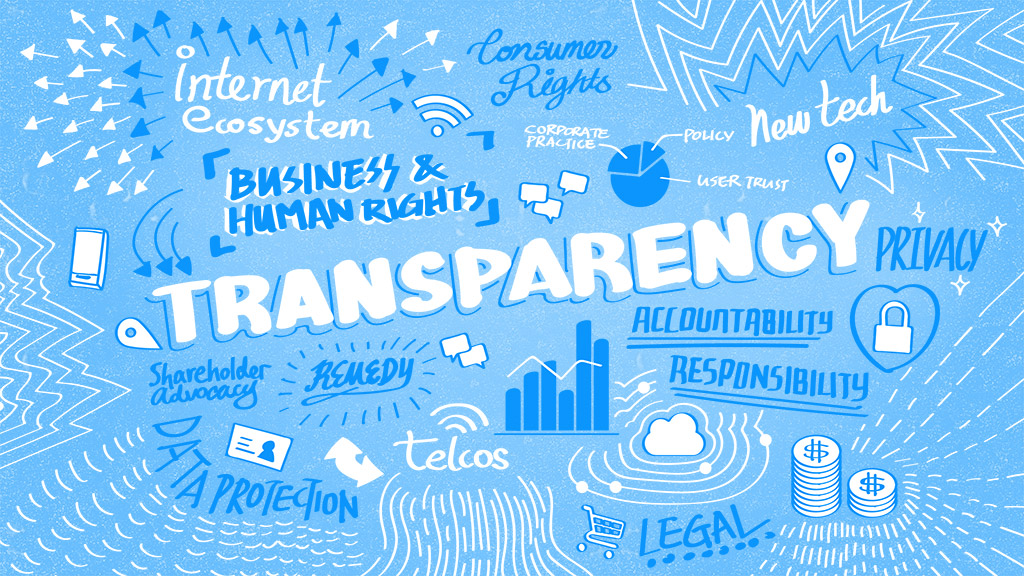In a previous blog post, we discussed the importance of transparency by companies and the role of transparency reporting in disclosing threats to the rights we enjoy online. Transparency is one piece of corporate accountability; governance is another. Without robust governance mechanisms, corporate respect for human rights will be inconsistent at best.
This is especially clear in the tech sector. As the world struggles to respond to the public health crisis, we are turning more to tech solutions including video conferencing tools to help us maintain our daily lives, and contact tracing apps to track and stop the spread of the virus. However, the rush to implement tech solutions has revealed the dangers of making human rights an afterthought in developing tech tools. As use of tech products increased due to the health crisis, recent examples of tech companies backpedaling to improve their human rights practices demonstrate why companies need robust internal governance mechanisms. Nanjira Sambuli, a researcher and tech policy analyst, describes the need to shift the narrative on tech and human rights: “The arc of digital technologies and innovations has been a ‘move fast, test, break and half-heartedly apologise later, if at all’ approach that has normalised human rights infringements as a cost of doing innovation, and making these key tenets an afterthought/acceptable casualty.”
Internal processes also benefit from sunlight. The new Global Network Initiative (GNI) public assessment report underscores the need for better corporate governance. GNI recently completed its third cycle of company assessments, where outside law and accounting firms get an insider look at parts of GNI’s eleven member companies, informed by case studies and inputs from GNI’s non-company members like human rights organizations, responsible investors, and academics. GNI released a high level summary report on the results. Across issues such as network disruptions, surveillance, and intermediary liability, GNI members commit to upholding the organization’s Principles to promote the rights to freedom of expression and privacy online. The GNI assessment report provides a glimpse into how major information and communications technology (ICT) companies are upholding this commitment.
The 2018/2019 assessment provides recommendations to member companies across four categories: governance, due diligence and risk management, freedom of expression and privacy in practice, and transparency and engagement. Notably, GNI made more recommendations on governance than on any other category. Among other areas such as board oversight, escalation, and involvement of senior management, the recommendations focused on building better internal structures and providing human rights training to employees to ensure that human rights are integrated throughout business operations. Verizon Media’s Business and Human Rights Program provides an exemplary model of a cross-functional team operating under clear commitments from senior level management to respect human rights.
The GNI recommendations provide some practical steps for companies to take, including formalizing reporting processes on issues related to freedom of expression and privacy, creating a centralized and cross-functional human rights program within the company, and integrating human rights and commitment to the GNI Principles in the hiring and onboarding of staff.
Access Now supports these recommendations, which align with many of our direct calls to companies. For example, we have called on GNI member company Facebook to reform its Board of Directors, telco MTN to issue a human rights policy, and Zoom to respect human rights in policy and practice. We also encourage all firms to respond to results of the Ranking Digital Rights Corporate Accountability Index, which has an entire set of governance indicators.
We urge companies to take these steps to implement robust governance mechanisms and to ensure consistent respect for human rights in all their business operations. This approach is the sustainable way to identify and prevent risks before they lead to greater human rights abuses.
